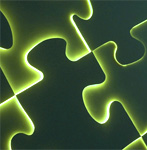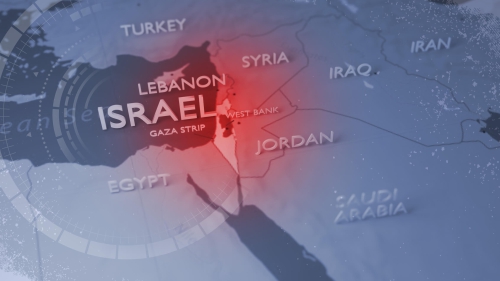A Middle East alliance reshaping the region
 |
While US President Barack Obama made history in Cairo yesterday, a new regional grouping is taking shape in the northern part of the Middle East that could turn out to be equally significant.
Turkey, Iran, Iraq and Syria are developing trade, energy and security ties that signal a common will to shape their national destinies free from external - and especially Western - dictation. What are the factors driving this new grouping? They are numerous, and mostly specific to each country.
Turkey - having faced disagreements and disappointments with the US (over the Iraq war), with the European Union (over the slow pace of accession negotiations) and with Israel (over the Palestine question) - has developed an ambitious regional policy towards its Arab and Islamic neighbours.
Turkey's trade with Iran, which was a mere $1 billion (Dh3.67 billion) in 2000, rose to $10 billion in 2008, and is projected to double to $20 billion in the not too distant future. Turkey is planning to invest $12 billion in Iran's South Pars gas field - a policy strikingly at variance with the call by Israel and its American friends for additional sanctions against Iran. Some one million Iranian tourists visit Turkey each year, and millions more visit Iraq, especially Kerbala, the place where Hussain, grandson of the Prophet Mohammad (PBUH) was martyred in AD680. His tomb is the holiest Shiite shrine.
Syria's strategic partnership with Iran is now 30 years old and shows no sign of waning. The Tehran-Damascus-Hezbollah axis is a geopolitical fact of life in the region and was widely seen, during in the Bush years, as the main obstacle to US-Israeli hegemony. In contrast to his predecessor, Obama is now seeking to reach out to both Iran and Syria, but he is apparently not yet ready to recognise that Hezbollah is an unavoidable actor on the Lebanese scene. If Obama's ambitious Middle East peace plans are to be realised, a US dialogue with both Hezbollah and Hamas cannot long be delayed.
Syria's relations with Turkey - strained almost to the point of war in 1998 over Syria's backing of the Kurdish PKK leader, Abdallah Ocalan - have improved dramatically. Two-way trade is flourishing. A straw in the wind was the recent Turkish decision to increase the flow of Euphrates water to Syria's north-east, which has been badly hit by drought.
Syrian-Iraqi relations, marked by extreme hostility during Saddam Hussain's rule, have also greatly improved. Last April, Syria's Prime Minister Mohammad Naji Otri signed a wide-ranging agreement in Baghdad establishing a free trade zone and providing for cooperation in energy and education. Syria is to participate in the rehabilitation of the Kirkuk to Banias oil pipeline, which passes through Syrian territory. Syria's port at Latakia is to be expanded and road links to Iraq improved, to provide transit facilities for Iraq's import/ export trade. A train carrying 800 tons of steel left the Syrian port of Tartous on Saturday for Baghdad, the first rail freight trip between the two countries in decades.
Iran, Turkey, and Syria all have a stake in Iraq's future. Iran would clearly like Iraq to be a friendly neighbour under continued Shiite leadership. It wants Iraq to revive, but never again to be so powerful as to pose a threat as deadly as Saddam's. Memories of the 1980-88 Iran-Iraq war are still too recent. Iran would probably prefer Iraq to develop into a relatively weak federal state, rather than a strong unified state. There are, however, no illusions in Tehran that Iraq, a major Arab country with a strong nationalist tradition, will ever consent to be an Iranian puppet.
Whoever wins the Iranian presidential elections next Friday - whether it is the conservative incumbent Mahmoud Ahmadinejad, or his principal challenger, former premier Mir Hussain Mousavi, a 'moderate' conservative backed by the main reformist parties - the main lines of Iran's external policy are unlikely to change: close ties with Syria, Iraq and Turkey; opposition to Sunni extremism in Afghanistan and Pakistan; support for Hezbollah and the Palestinians; and continued uranium enrichment.
What sort of Iraq, its neighbours wonder, will emerge from the slaughter, destruction and chaos of the past six years? Can a new regional balance be reached now that Iraq is again able to assert its national interests?
It seems clear that Iraq has turned a corner. Violent deaths in May, at about 165, were among the lowest for any month since the US-led invasion of 2003. Security is gradually returning, although still marred by horrendous suicide bombings. The Iraqi security forces - army, police, and intelligence - are steadily improving in size and efficiency. The recent conclusion of a Status of Forces Agreement with the US - with firm deadlines for the withdrawal of American armed forces - was an important expression of Iraqi sovereignty regained.
But much remains to be done. Sunni-Shiite relations in Iraq remain tense, while Arab-Kurdish relations are still problematic. A hydrocarbons law has not yet been passed by parliament (although the central government has thought it best to turn a blind eye to the start of oil exports from the Kurdish region to Turkey).
The grouping of Turkey, Iran, Iraq and Syria may not yet be a full-fledged alliance, but numerous common interests seem to be pulling them in that direction.
Patrick Seale is a commentator and author of several books on Middle East affairs.
Topics: Barack Obama, Foreign Policy, Iran, Iraq, Syria, Turkiye
Views: 4412
Related Suggestions
In my opinion bombing and displacing innocent people on the pretest of trying to "catch criminals" is a war crime, a war atrocity and should be seriously and truthfully investigated. Also those billions of dollars stashed in the president's Swiss Bank accounts should be immediately returned to the Govt and people of Pakistan. And stop the bombing of innocent people NOW. Please FEAR GOD.
May Allh give us Hidayat to unserdtand the evil design ,,, and show us the right path.Ameen

















